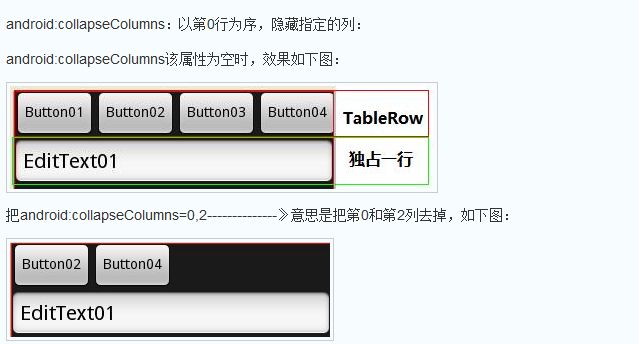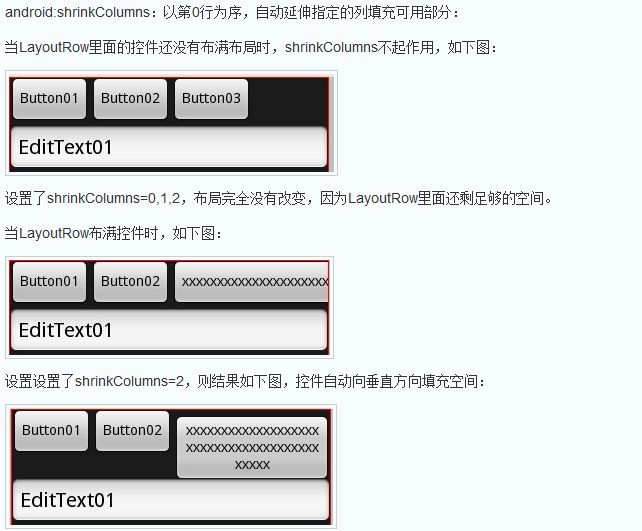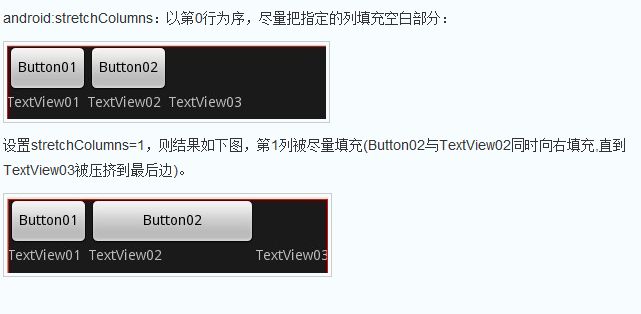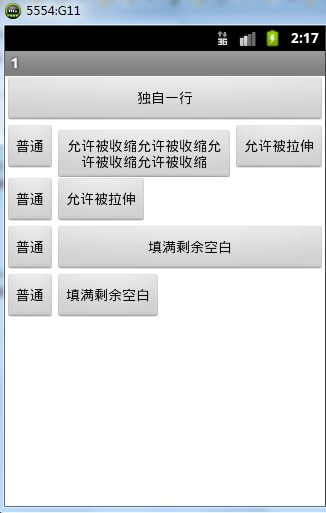- 理解WPF中的布局
会敲键盘的肘子
.Net实用方法总结wpf.net
一、理解WPF中的布局在WPF问世之前,Windows开发人员使用刻板的基于坐标的布局将控件放到正确位置。在WPF中,这种方式虽然可行,但已经极少使用。大多数应用程序将使用类似于Web的流(flow)布局;在使用流布局模型时,控件可以扩大,并将其他控件挤到其他位置,开发人员能创建与显示分辨率和窗口大小无关的、在不同的显示器上正确缩放的用户界面;当窗口内容发生变化时,界面可调整自身,并且可以自如地处
- Java设计模式 三十五 责任链模式 + 中介者模式
空灵宫(Ethereal Palace)
设计模式java设计模式责任链模式
责任链模式+中介者模式责任链模式(ChainofResponsibilityPattern)和中介者模式(MediatorPattern)是两种行为型设计模式,它们分别处理不同的职责和协作方式。将这两种模式结合使用,可以更好地解耦系统中的组件,特别是在需要处理多个对象之间复杂交互的场景中。让我们看看这两种模式的特点以及如何结合使用。责任链模式(ChainofResponsibilityPatter
- 为AI聊天工具添加一个知识系统 之65 详细设计 之6 变形机器人及伺服跟随
一水鉴天
软件智能智能制造人工语言人工智能
本文要点要点三种“数”条件:necessaryconditionX-scale,sufficientconditionY-size,INUSconditionZ-score。带自己的下标。下标值范围:scale(水平)1~5,size(垂直)1~3,score(正交基)1~10。三个轴各自的运动规律(平移,竖划,旋转)给出由图形算法支持的具有伺服跟随能力的变形机器人。利用不同感觉器官发挥不同跟随能
- 零基础C语言之分支结构
奋斗的若若
C语言c语言开发语言
一个完整的程序包括三种代码控制流程:1.顺序流程2.分支流程3.循环流程这一次我们就要学习分支流程C语言的分支结构包括if语句、switch语句和三目运算符。if语句:if语句用于根据条件执行不同的代码块。其基本语法为:if(条件表达式){//当条件表达式为真时执行的代码}else{//当条件表达式为假时执行的代码}#define_CRT_SECURE_NO_WARNINGS#pragmawarn
- 容器学习Day04-Ubuntu常用命令(二)
AtobeKegio
容器技术ubuntu运维linux
系列文章目录容器学习Day01-初识容器容器学习Day02-VMwareWorkstation安装Ubuntu容器学习Day03-Ubuntu常用命令(一)容器学习Day04-Ubuntu常用命令(二)容器学习Day05-Ubuntu常用命令(三)容器学习Day06-Ubuntu常用命令(四)容器学习Day07-Docker基础(一)容器学习Day08-Docker基础(二)容器学习Day09-理
- Objective-C语言的安全开发
萧澄华
包罗万象golang开发语言后端
Objective-C语言的安全开发引言在当今的信息技术时代,软件的安全性已成为开发者必须重视的重点。随着移动互联网的蓬勃发展,iOS作为重要的移动操作系统,受到越来越多开发者的关注。而Objective-C作为iOS应用开发的主要语言之一,其安全性问题也应引起重视。本文将探讨在Objective-C语言中进行安全开发的最佳实践,帮助开发者在应用编程过程中减少安全隐患,提高应用的安全性。一、了解O
- VBA语言的安全开发
萧澄华
包罗万象golang开发语言后端
VBA语言的安全开发在当今信息化迅猛发展的时代,数据安全和信息保护显得尤为重要。VBA(VisualBasicforApplications)作为一种广泛应用于MicrosoftOffice系列软件的编程语言,因其简易性和强大功能,成为了众多企业和个人用户在日常工作中的热门选择。然而,随着VBA应用的普及,安全隐患也逐渐显露,代码的安全漏洞可能导致信息泄露、数据篡改甚至系统攻击。因此,掌握VBA语
- java之小六壬算命代码实现——预知自己命运如何!
钮钴禄·爱因斯晨
java学习java开发语言AIGCgithub
我命由我,不由天,是魔是仙,算算就知道了~欢迎来访~个人主页欢迎各位佬们互三哦~互三必回!!#一、小六壬背景介绍1.文化起源小六壬作为中国古代占卜法,文化背景深厚。起源说法不一,流传较广的是唐代李淳风创立“六壬时课”,即小六壬,以区别“大六壬”。也有东汉起源、黄帝时代传说、马前课演化、鬼谷子传承等观点。其发展历程中,唐朝创立后在民间流传,用于日常生活预测;明朝刘基将其用于军事决策;清朝乾隆年间被记
- Python 如何使用 Bert 进行中文情感分析
程序员徐师兄
Python入门专栏pythonbert开发语言情感分析
前言在自然语言处理(NLP)领域,情感分析是一个非常常见且重要的应用。情感分析通常用于识别文本中的情感,例如判断一条微博或评论是正面、负面还是中性。在过去的几年中,随着深度学习的发展,BERT(BidirectionalEncoderRepresentationsfromTransformers)模型迅速成为了处理自然语言的强大工具。BERT是一种基于Transformer架构的预训练模型,它能够
- Powershell语言的云计算
萧澄华
包罗万象golang开发语言后端
PowerShell与云计算:新时代的自动化管理工具在当今快速发展的信息技术时代,云计算已经成为企业和个人计算资源的主要选择。随着云服务的普及,如何高效地管理和自动化云环境中的资源,成为了IT管理员和开发者们面临的重要挑战。PowerShell作为一款强大的脚本语言和自动化框架,凭借其优秀的功能和灵活性,逐渐在云计算管理中扮演了不可或缺的角色。一、PowerShell简介1.1什么是PowerSh
- Vue全家桶 - 电商后台管理系统项目开发实录(详)
←か淡定☆ ヾ
前端vue.jsjavascripthtml5node.jscss3
目录1.项目概述1.1电商项目基本业务概述1.2电商后台管理系统的功能1.3电商后台管理系统的开发模式(前、后端分离)2.项目初始化2.1前端项目初始化步骤码云相关操作2.2后台项目的环境安装配置3.登录/退出功能3.1登录概述3.2登录-token原理分析3.3实现登录功能3.4实现退出功能处理ESLint警告4.主页布局4.1后台首页基本布局4.2顶部布局,侧边栏布局4.2.1.顶部布局4.2
- 【Python百日进阶-Web开发-Feffery】Day604 - 趣味dash_04:Excel转Pdf文件
岳涛@泰山医院
Dashpythonexcel前端dash
文章目录一、环境准备1.1初始化基础`Python+Dash`环境1.2本例中使用的第三方包二、本项目B站视频讲解三、页面效果四、项目源码一、环境准备1.1初始化基础Python+Dash环境CSDN文档参见:https://blog.csdn.net/yuetaope/article/details/129795264Bilibili视频参见:https://www.bilibili.com/v
- Redisson 实现分布式锁
程序员jin
编程开发数据库分布式数据库redis
文章目录一.锁介绍二.什么是分布式锁三.为什么需要分布式锁四.分布式锁实现五.分布式锁注意事项六.看门狗机制七.Redisson实现分布式锁一.锁介绍单机锁:用于一台服务器的同步执行。分布式锁:用于多台服务器之间的同步执行。有限资源的情况下,控制同一时间(段)只有某些线程(用户/服务器)能访问到资源。Java实现锁:synchronized关键字、并发包的类。Javasynchronized实现锁
- Python进阶--Python操作excel
小昀小杭
pythonexcel数据库
一、xlsxwirter三方库优点:写的快功能多缺点:只能写问题:内容并不是直接写入文件中只有在关闭的时候才会写入文件实例:#创建excel文件wb=xlsxwriter.Workbook("cars.xlsx")#在该文件下创建sheetws=self.wb.get_worksheet_by_name("Car")orself.wb.add_worksheet("Car")ws.write(ro
- 【2025 ODA teigha .NET系列开发教程 第四章】带你读写DWG、DXF文件内的所有标注,包括源码
三好学生~张旺
ODATeigha.NET开发教程.net数据库c#
文章目录例如:第四章带你读写DWG、DXF文件内的所标注2025ODAteigha.NET系列开发教程文章目录1.概述2.基础设置️2.1创建数据库和事务2.2创建线型〰️3.创建标注✨3.1对齐标注示例3.2常用标注属性设置⚙️4.标注类型详解4.1旋转标注4.2角度标注4.3半径标注↔️5.最佳实践6.注意事项⚠️7.进阶技巧所有代码下载TeighaSDK21.6.NET1.概述这段代码展示了
- GBase 数据库的性能调优与故障排查
big crab
数据库
一、引言在现代企业的数据驱动运营中,数据库的性能是核心问题之一。GBase数据库作为高性能、高可用的数据库解决方案,被广泛应用于大数据、高并发的场景中。为了最大化GBase数据库的性能,了解如何调优数据库的配置、查询执行计划和硬件资源使用至关重要。本文将深入探讨GBase数据库的性能调优策略、常见故障排查方法,并结合SQL示例和调优技巧,帮助开发者和数据库管理员提升GBase数据库的整体效率。二、
- 用 Java 发送 HTML 内容并带附件的电子邮件
五行星辰
业务系统应用技术javahtml
实现思路首先,设置邮件服务器的相关属性,包括是否需要认证、使用的邮件协议、服务器地址、端口等。创建一个会话对象,使用Session.getInstance方法,并提供邮件服务器的属性和认证信息。创建一个MimeMessage对象作为邮件消息,设置发件人、收件人、邮件主题等信息。为了发送HTML内容,使用setContent方法并指定内容类型为text/html。对于附件,创建一个MimeMulti
- 【代码】PPARCHP1,批量给SAP生产订单打上删除标识,提高月结时工单结算效率
saplakes
#SAP_ABAPABAPSAPPPARCHP1生产订单批量删除标识
文章目录前言一、PPARCHP1二、PPARCHP1代码三、权限检查四、效果前言SAP系统的生产订单产生的数量太多之后,会导致SAP月结时生产订单结算时的工单结算比较缓慢。因此以原代码拷贝出来,加上了权限检查、创建事务码,并分配给财务会计来定期运行,提高月结效率。一、PPARCHP1程序是PPARCHP1二、PPARCHP1代码REPORTpparchp1.*-------------------
- R数据分析:多分类问题预测模型的ROC做法及解释
公众号Codewar原创作者
R数据分析
有同学做了个多分类的预测模型,结局有三个类别,做的模型包括多分类逻辑回归、随机森林和决策树,多分类逻辑回归是用ROC曲线并报告AUC作为模型评估的,后面两种模型报告了混淆矩阵,审稿人就提出要统一模型评估指标。那么肯定是统一成ROC了,刚好借这个机会给大家讲讲ROC在多分类问题情形下的具体使用和做法。ROC曲线回顾ROC曲线(ReceiverOperatingCharacteristicCurve)
- 我的ROS学习笔记(四)
zenpluck
自动驾驶c++
提示:文章写完后,目录可以自动生成,如何生成可参考右边的帮助文档publisher程序代码学习前言一、包含消息类型声明二、创建发布者对象三、创建并填充消息对象四、发布消息五、消息发布循环1.节点是否停止工作的检查2.控制消息发布频率总结前言发布者程序包含了很多之前不懂的知识,刚开始也许只能复制粘贴代码来运行实例,但最终目的还是为了自己能够编写这些代码。因此,弄明白哪部分代码是什么意思非常有必要,不
- 搭建vue项目
LYy0
vue.js前端javascript
一、VueVue是一款用于构建用户界面的JavaScript框架。它基于标准HTML、CSS和JavaScript构建,并提供了一套声明式的、组件化的编程模型,帮助你高效地开发用户界面。无论是简单还是复杂的界面,Vue都可以胜任。二、环境1.nodejs环境:下载地址三、创建Vue应用创建的项目将使用基于Vite的构建设置,并允许我们使用Vue的单文件组件(SFC)。$npmcreatevue@l
- 11、智能驾驶域控的散热和结构
OEM的牛马DRE
智能驾驶控制器硬件介绍人工智能
域控制器作为自动驾驶系统的核心部件,其硬件结构与散热设计需满足一系列严格要求,以确保系统的稳定运行和高效性能。一、域控制器硬件结构要求满足整车布置尺寸限制:域控制器的设计需充分考虑整车的空间布局,确保尺寸紧凑、结构合理,以适应不同车型的安装需求。满足防护等级要求:域控制器需具备较高的防护等级,如IP67或更高,以抵御灰尘、水分等外部环境的侵害,确保内部电子元件的正常运行。考虑轻量化设计:在保证性能
- 类与对象中的六大默认成员函数万字详解
kk\n
c++开发语言
目录1、类的6个默认成员函数2、构造函数2.1、概念2.2、特性3、析构函数3.1、概念3.2、特性4、拷贝构造函数4.1、概念4.2、特性5、赋值运算符重载5.1、运算符重载5.2、赋值运算符重载5.3、前置++和后置++重载1、类的6个默认成员函数如果一个类中什么成员都没有,简称为空类。空类中真的什么都没有吗?并不是,任何类在什么都不写时,编译器会自动生成以下6个默认成员函数。默认成员函数:用
- 提升个人时间管理与工作效率的实用技巧
时间管理工作效率个人时间管理
时间管理和工作效率是现代职场成功的关键。无论是在繁忙的工作中,还是在个人生活的平衡中,能够有效地管理时间和提高工作效率,都能显著提升个人的生产力和成就感。提升个人时间管理和工作效率的方法包括:制定明确的目标和优先级、合理规划日常时间、利用高效工具、避免拖延、保持专注、以及定期反思与调整工作方式。本文将深入探讨这些策略,并提供具体的实施方法,帮助你提升个人工作效率,并在有限的时间内达成更多的任务。一
- 中国CRM市场发展现状与主流产品分析
程序员算法机器学习
随着中国企业数字化转型的不断深入,客户关系管理(CRM)系统在企业运营中扮演着越来越重要的角色。不同规模、不同行业的企业对CRM系统的需求也呈现出多样化的特点。本文将从多个维度深入分析中国主流CRM产品的优劣势,为企业选择合适的CRM系统提供参考。一、销售易-本土CRM市场的佼佼者销售易作为中国本土CRM领域的领军企业,其产品具有以下特点:优势:深度本土化,对中国企业的业务场景理解深刻,能够快速响
- 学习笔记之——3DGS-SLAM系列代码解读
gwpscut
3DGaussianSplatting(3DGS)3DGS深度学习三维重建计算机视觉3d
最近对一系列基于3DGaussianSplatting(3DGS)SLAM的工作的源码进行了测试与解读。为此写下本博客mark一下所有的源码解读以及对应的代码配置与测试记录~其中工作1~5的原理解读见博客:学习笔记之——3DGaussianSplatting及其在SLAM与自动驾驶上的应用调研_3dgaussiansplattingslam-CSDN博客文章浏览阅读5.3k次,点赞53次,收藏92
- 信创、湖仓一体化、AI+DB,2024年数据库&湖仓发展总结与展望
数据库
作者:吴炳锡时光荏苒,转眼间2025年已然来临,这又是我从传统OLTP数据库领域转向云原生湖仓Databend的第三个年头,这段转变恰如一场快速的旅程,让我深感这一年如飞箭般迅速。展望未来,我意识到,尽管数据库行业正面临明显的瓶颈,湖仓领域却蕴藏着无尽的潜力,而AI的崛起将进一步提高从业门槛。以下,我将从四个方面与大家分享我对2024年数据库&湖仓的回顾与思考:1.数据库的发展现状2.湖仓现状3.
- AI时代,需要怎样的架构师?腾讯云架构师峰会来了!
架构
引言架构设计对应用有关键性的影响,不仅决定应用的整体品质,还直接影响开发、维护和扩展的难易度。卓越的架构设计不仅能够确保系统的稳定性、高效性和可扩展性,还能大幅提升研发效能,同时显著降低维护成本。在快速变化的技术环境中,架构师们面临业务需求快速迭代、数据量急剧膨胀以及系统复杂性不断提升等挑战。随着云计算、大数据、人工智能等前沿技术的蓬勃发展,一系列创新解决方案如微服务架构、AI大模型、自动化运维工
- CRM客户管理系统有什么缺点
crm系统
CRM(客户关系管理)系统是现代企业管理中至关重要的一部分,它能够帮助企业有效地管理客户数据、提升客户满意度和忠诚度。然而,尽管CRM系统在提升企业运营效率方面有着显著的优势,但它并非没有缺点。CRM系统的主要缺点包括高昂的实施成本、复杂的系统集成难度、用户适应性差、数据安全隐患等问题。在这些缺点中,“高昂的实施成本”通常是许多中小企业不愿意或无法采纳CRM系统的主要原因。详细来说,CRM系统的高
- 告别拖延,走向高效:GTD时间管理法
时间管理
你是否常常感到时间不够用,任务堆积如山,却总是无法按时完成?你是否因为拖延而经常熬夜赶工,导致效率低下、压力倍增?你是否觉得工作安排混乱,难以集中精力处理重要事项?如果你的答案是“是”,那么这篇文章将为你带来一种全新的时间管理方法——GTD(GettingThingsDone),帮助你轻松应对这些挑战,提升工作效率和生活质量。什么是GTD?GTD的核心理念可以概括为一句话:“大脑是用来思考的,而不
- Linux的Initrd机制
被触发
linux
Linux 的 initrd 技术是一个非常普遍使用的机制,linux2.6 内核的 initrd 的文件格式由原来的文件系统镜像文件转变成了 cpio 格式,变化不仅反映在文件格式上, linux 内核对这两种格式的 initrd 的处理有着截然的不同。本文首先介绍了什么是 initrd 技术,然后分别介绍了 Linux2.4 内核和 2.6 内核的 initrd 的处理流程。最后通过对 Lin
- maven本地仓库路径修改
bitcarter
maven
默认maven本地仓库路径:C:\Users\Administrator\.m2
修改maven本地仓库路径方法:
1.打开E:\maven\apache-maven-2.2.1\conf\settings.xml
2.找到
- XSD和XML中的命名空间
darrenzhu
xmlxsdschemanamespace命名空间
http://www.360doc.com/content/12/0418/10/9437165_204585479.shtml
http://blog.csdn.net/wanghuan203/article/details/9203621
http://blog.csdn.net/wanghuan203/article/details/9204337
http://www.cn
- Java 求素数运算
周凡杨
java算法素数
网络上对求素数之解数不胜数,我在此总结归纳一下,同时对一些编码,加以改进,效率有成倍热提高。
第一种:
原理: 6N(+-)1法 任何一个自然数,总可以表示成为如下的形式之一: 6N,6N+1,6N+2,6N+3,6N+4,6N+5 (N=0,1,2,…)
- java 单例模式
g21121
java
想必单例模式大家都不会陌生,有如下两种方式来实现单例模式:
class Singleton {
private static Singleton instance=new Singleton();
private Singleton(){}
static Singleton getInstance() {
return instance;
}
- Linux下Mysql源码安装
510888780
mysql
1.假设已经有mysql-5.6.23-linux-glibc2.5-x86_64.tar.gz
(1)创建mysql的安装目录及数据库存放目录
解压缩下载的源码包,目录结构,特殊指定的目录除外:
- 32位和64位操作系统
墙头上一根草
32位和64位操作系统
32位和64位操作系统是指:CPU一次处理数据的能力是32位还是64位。现在市场上的CPU一般都是64位的,但是这些CPU并不是真正意义上的64 位CPU,里面依然保留了大部分32位的技术,只是进行了部分64位的改进。32位和64位的区别还涉及了内存的寻址方面,32位系统的最大寻址空间是2 的32次方= 4294967296(bit)= 4(GB)左右,而64位系统的最大寻址空间的寻址空间则达到了
- 我的spring学习笔记10-轻量级_Spring框架
aijuans
Spring 3
一、问题提问:
→ 请简单介绍一下什么是轻量级?
轻量级(Leightweight)是相对于一些重量级的容器来说的,比如Spring的核心是一个轻量级的容器,Spring的核心包在文件容量上只有不到1M大小,使用Spring核心包所需要的资源也是很少的,您甚至可以在小型设备中使用Spring。
- mongodb 环境搭建及简单CURD
antlove
WebInstallcurdNoSQLmongo
一 搭建mongodb环境
1. 在mongo官网下载mongodb
2. 在本地创建目录 "D:\Program Files\mongodb-win32-i386-2.6.4\data\db"
3. 运行mongodb服务 [mongod.exe --dbpath "D:\Program Files\mongodb-win32-i386-2.6.4\data\
- 数据字典和动态视图
百合不是茶
oracle数据字典动态视图系统和对象权限
数据字典(data dictionary)是 Oracle 数据库的一个重要组成部分,这是一组用于记录数据库信息的只读(read-only)表。随着数据库的启动而启动,数据库关闭时数据字典也关闭 数据字典中包含
数据库中所有方案对象(schema object)的定义(包括表,视图,索引,簇,同义词,序列,过程,函数,包,触发器等等)
数据库为一
- 多线程编程一般规则
bijian1013
javathread多线程java多线程
如果两个工两个以上的线程都修改一个对象,那么把执行修改的方法定义为被同步的,如果对象更新影响到只读方法,那么只读方法也要定义成同步的。
不要滥用同步。如果在一个对象内的不同的方法访问的不是同一个数据,就不要将方法设置为synchronized的。
- 将文件或目录拷贝到另一个Linux系统的命令scp
bijian1013
linuxunixscp
一.功能说明 scp就是security copy,用于将文件或者目录从一个Linux系统拷贝到另一个Linux系统下。scp传输数据用的是SSH协议,保证了数据传输的安全,其格式如下: scp 远程用户名@IP地址:文件的绝对路径
- 【持久化框架MyBatis3五】MyBatis3一对多关联查询
bit1129
Mybatis3
以教员和课程为例介绍一对多关联关系,在这里认为一个教员可以叫多门课程,而一门课程只有1个教员教,这种关系在实际中不太常见,通过教员和课程是多对多的关系。
示例数据:
地址表:
CREATE TABLE ADDRESSES
(
ADDR_ID INT(11) NOT NULL AUTO_INCREMENT,
STREET VAR
- cookie状态判断引发的查找问题
bitcarter
formcgi
先说一下我们的业务背景:
1.前台将图片和文本通过form表单提交到后台,图片我们都做了base64的编码,并且前台图片进行了压缩
2.form中action是一个cgi服务
3.后台cgi服务同时供PC,H5,APP
4.后台cgi中调用公共的cookie状态判断方法(公共的,大家都用,几年了没有问题)
问题:(折腾两天。。。。)
1.PC端cgi服务正常调用,cookie判断没
- 通过Nginx,Tomcat访问日志(access log)记录请求耗时
ronin47
一、Nginx通过$upstream_response_time $request_time统计请求和后台服务响应时间
nginx.conf使用配置方式:
log_format main '$remote_addr - $remote_user [$time_local] "$request" ''$status $body_bytes_sent "$http_r
- java-67- n个骰子的点数。 把n个骰子扔在地上,所有骰子朝上一面的点数之和为S。输入n,打印出S的所有可能的值出现的概率。
bylijinnan
java
public class ProbabilityOfDice {
/**
* Q67 n个骰子的点数
* 把n个骰子扔在地上,所有骰子朝上一面的点数之和为S。输入n,打印出S的所有可能的值出现的概率。
* 在以下求解过程中,我们把骰子看作是有序的。
* 例如当n=2时,我们认为(1,2)和(2,1)是两种不同的情况
*/
private stati
- 看别人的博客,觉得心情很好
Cb123456
博客心情
以为写博客,就是总结,就和日记一样吧,同时也在督促自己。今天看了好长时间博客:
职业规划:
http://www.iteye.com/blogs/subjects/zhiyeguihua
android学习:
1.http://byandby.i
- [JWFD开源工作流]尝试用原生代码引擎实现循环反馈拓扑分析
comsci
工作流
我们已经不满足于仅仅跳跃一次,通过对引擎的升级,今天我测试了一下循环反馈模式,大概跑了200圈,引擎报一个溢出错误
在一个流程图的结束节点中嵌入一段方程,每次引擎运行到这个节点的时候,通过实时编译器GM模块,计算这个方程,计算结果与预设值进行比较,符合条件则跳跃到开始节点,继续新一轮拓扑分析,直到遇到
- JS常用的事件及方法
cwqcwqmax9
js
事件 描述
onactivate 当对象设置为活动元素时触发。
onafterupdate 当成功更新数据源对象中的关联对象后在数据绑定对象上触发。
onbeforeactivate 对象要被设置为当前元素前立即触发。
onbeforecut 当选中区从文档中删除之前在源对象触发。
onbeforedeactivate 在 activeElement 从当前对象变为父文档其它对象之前立即
- 正则表达式验证日期格式
dashuaifu
正则表达式IT其它java其它
正则表达式验证日期格式
function isDate(d){
var v = d.match(/^(\d{4})-(\d{1,2})-(\d{1,2})$/i);
if(!v) {
this.focus();
return false;
}
}
<input value="2000-8-8" onblu
- Yii CModel.rules() 方法 、validate预定义完整列表、以及说说验证
dcj3sjt126com
yii
public array rules () {return} array 要调用 validate() 时应用的有效性规则。 返回属性的有效性规则。声明验证规则,应重写此方法。 每个规则是数组具有以下结构:array('attribute list', 'validator name', 'on'=>'scenario name', ...validation
- UITextAttributeTextColor = deprecated in iOS 7.0
dcj3sjt126com
ios
In this lesson we used the key "UITextAttributeTextColor" to change the color of the UINavigationBar appearance to white. This prompts a warning "first deprecated in iOS 7.0."
Ins
- 判断一个数是质数的几种方法
EmmaZhao
Mathpython
质数也叫素数,是只能被1和它本身整除的正整数,最小的质数是2,目前发现的最大的质数是p=2^57885161-1【注1】。
判断一个数是质数的最简单的方法如下:
def isPrime1(n):
for i in range(2, n):
if n % i == 0:
return False
return True
但是在上面的方法中有一些冗余的计算,所以
- SpringSecurity工作原理小解读
坏我一锅粥
SpringSecurity
SecurityContextPersistenceFilter
ConcurrentSessionFilter
WebAsyncManagerIntegrationFilter
HeaderWriterFilter
CsrfFilter
LogoutFilter
Use
- JS实现自适应宽度的Tag切换
ini
JavaScripthtmlWebcsshtml5
效果体验:http://hovertree.com/texiao/js/3.htm
该效果使用纯JavaScript代码,实现TAB页切换效果,TAB标签根据内容自适应宽度,点击TAB标签切换内容页。
HTML文件代码:
<!DOCTYPE html>
<html xmlns="http://www.w3.org/1999/xhtml"
- Hbase Rest API : 数据查询
kane_xie
RESThbase
hbase(hadoop)是用java编写的,有些语言(例如python)能够对它提供良好的支持,但也有很多语言使用起来并不是那么方便,比如c#只能通过thrift访问。Rest就能很好的解决这个问题。Hbase的org.apache.hadoop.hbase.rest包提供了rest接口,它内嵌了jetty作为servlet容器。
启动命令:./bin/hbase rest s
- JQuery实现鼠标拖动元素移动位置(源码+注释)
明子健
jqueryjs源码拖动鼠标
欢迎讨论指正!
print.html代码:
<!DOCTYPE html>
<html>
<head>
<meta http-equiv=Content-Type content="text/html;charset=utf-8">
<title>发票打印</title>
&l
- Postgresql 连表更新字段语法 update
qifeifei
PostgreSQL
下面这段sql本来目的是想更新条件下的数据,可是这段sql却更新了整个表的数据。sql如下:
UPDATE tops_visa.visa_order
SET op_audit_abort_pass_date = now()
FROM
tops_visa.visa_order as t1
INNER JOIN tops_visa.visa_visitor as t2
ON t1.
- 将redis,memcache结合使用的方案?
tcrct
rediscache
公司架构上使用了阿里云的服务,由于阿里的kvstore收费相当高,打算自建,自建后就需要自己维护,所以就有了一个想法,针对kvstore(redis)及ocs(memcache)的特点,想自己开发一个cache层,将需要用到list,set,map等redis方法的继续使用redis来完成,将整条记录放在memcache下,即findbyid,save等时就memcache,其它就对应使用redi
- 开发中遇到的诡异的bug
wudixiaotie
bug
今天我们服务器组遇到个问题:
我们的服务是从Kafka里面取出数据,然后把offset存储到ssdb中,每个topic和partition都对应ssdb中不同的key,服务启动之后,每次kafka数据更新我们这边收到消息,然后存储之后就发现ssdb的值偶尔是-2,这就奇怪了,最开始我们是在代码中打印存储的日志,发现没什么问题,后来去查看ssdb的日志,才发现里面每次set的时候都会对同一个key



